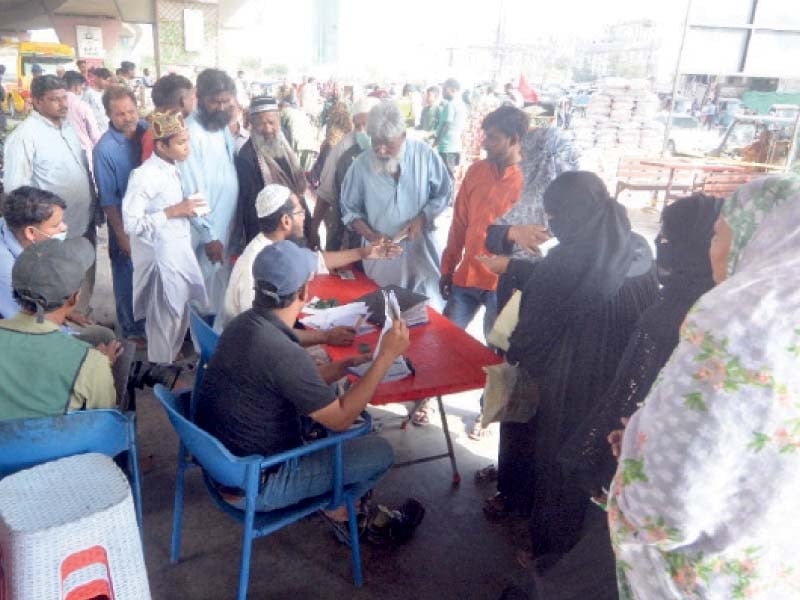
Karachi, a sprawling urban metropolis that is home to more than 20 million people, is said to be run on charity in absence of a sufficient public welfare system.
This also appeared true during the worst of the Covid-19 pandemic, when it was hundreds of charitable organisations that stepped up to aid the people in their darkest hour, be it through financial help, increasing access to healthcare or assuring food safety.
However, even today, when the port city has cleared the coast, declaring the pandemic a thing of the past, the Karachi’s charitable inclinations still continue to aid millions every day. Despite a gradual but promising return to the ‘old normal’, various charities operating in the port city appear to be upholding their pandemic tradition of distributing ration bags among those on their beam-ends.
“While in the past years, it was Covid-19 that had pushed many people to the breadlines, this year it is the fast rising inflation that has put food away from the reach of thousands in Karachi,” said Muhammad Amin, a student and volunteer working for a welfare group involved in distributing food bags across the city’s most improvised neighborhoods. “It is also that this is the month of Ramazan, so charity is highly rewarded and everyone, including our donors, are very keen to contribute,” he added.
Similarly, according to Tanveer Ahmed, who is a resident of the city’s Liaqatabad area, charity, empathy and acts of virtue are the core elements of Ramazan, for Muslims. “However, the people of Karachi are also very generous all year round. In Ramazan, the charity certainly increases because people also give out their zakaat and fitra money, but it is a fact that we have hundreds of welfare organisations here, that work night and day, all year round to ensure that no one goes hungry in this city,” he told, addressing Karachi’s charitable nature.
Read More: Amnesty schemes for elite, food charity for poor won't work: Bilawal
Corroborating Ahmed’s statement, Saad Edhi of the Edhi Foundation, which is one of the largest local welfare organsations, said that distribution of ration bags is something that happens generously throughout Ramazan. “However, the charity never stops. Our organisation and others continue to aid the people of Karachi all year round in one way or another,” he added.
Per Haji Shahid, a local store owner whose shop prepares ration bags for a variety of welfare organisations, a single ration bag can cost between Rs3,000 to Rs8,000 depending on its size and content. “Owing to the rising inflation, food prices have skyrocketed in the last few months. It is commendable that welfare groups are committed to increasing people’s access to staple food items, but even our ration bags have seen a Rs500-Rs2,000 worth jump in prices,” revealed the shopkeeper while talking about the flailing state of economy.
Speaking in this regard, Asif Iqbal, who is associated with a local mosque said affording food has becoming increasingly difficult for even those who once identified as the middle-class. “A lot of these people are too shy to ask for monitory help, so it great that all the charities in the city are continuing their good work even after the pandemic to aid people without exposing their penury. This is in line with the spirit of the holy month and Karachi has always been a generous city,” he told The Express Tribune.
Published in The Express Tribune, April 20th, 2022.





















COMMENTS
Comments are moderated and generally will be posted if they are on-topic and not abusive.
For more information, please see our Comments FAQ